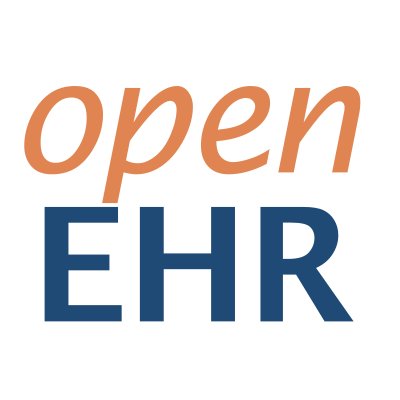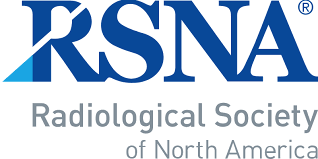COVID-19 pandemic
See the following -
Open Policy Alliance: A New Program To Amplify Underrepresented Voices In Public Policy Development
By Deborah Bryant | June 28, 2023
 On behalf of the Open Source Initiative and the public policy team, I’m very pleased to share early news of our new educational program – one aimed at building and supporting a coalition of underrepresented voices from public benefit and charitable foundations. This new program – the Open Policy Alliance – seeks to empower these voices and enable them to actively participate in educating and informing US public policy decisions related to Open Source software, content, research, and education. The OPA is created in response to increased demand for public dialog and stakeholder engagement in these adjacent and related “open domains”.
On behalf of the Open Source Initiative and the public policy team, I’m very pleased to share early news of our new educational program – one aimed at building and supporting a coalition of underrepresented voices from public benefit and charitable foundations. This new program – the Open Policy Alliance – seeks to empower these voices and enable them to actively participate in educating and informing US public policy decisions related to Open Source software, content, research, and education. The OPA is created in response to increased demand for public dialog and stakeholder engagement in these adjacent and related “open domains”.
- Login to post comments
openEHR Community Rises to the Challenge of Coronavirus
Press Release |
OpenEHR |
March 11, 2020
 The global openEHR community led by the major openEHR vendors DIPS (Norway) and Better (Slovenia) have today released open source components to assist software developers creating applications and services to help those fighting the global Coronavirus (COVID-19) pandemic. When the first case of Coronavirus arrived in Norway, Bjørn Næss from DIPS (Norway's largest supplier of hospital IT systems) recognised the need to rapidly develop software to help monitor the outbreak, and reduce the data collection burden on overstretched health workers.
The global openEHR community led by the major openEHR vendors DIPS (Norway) and Better (Slovenia) have today released open source components to assist software developers creating applications and services to help those fighting the global Coronavirus (COVID-19) pandemic. When the first case of Coronavirus arrived in Norway, Bjørn Næss from DIPS (Norway's largest supplier of hospital IT systems) recognised the need to rapidly develop software to help monitor the outbreak, and reduce the data collection burden on overstretched health workers.
- Login to post comments
OpenMRS Receives Mozilla Open Source Support Program Award for COVID-19 Response
By Jennifer Antilla | June 12, 2020
 When the OpenMRS community learned about the COVID-19 Solutions Fund set up by Mozilla as a part of their ongoing Mozilla Open Source Support Program (MOSS) in early April, we saw this as the perfect opportunity to support our community's COVID-19 response. The idea at the time? Build out a suite of science-based COVID-19 tools that could also be used for future disease outbreaks - and make them easily available to people looking for a way to manage COVID-19 patient data and surveillance efforts. OpenMRS Inc became one of 163 applicants from 30 countries that MOSS received within two months. We are honored to be among the six awardees to date, receiving a $49,754 award that will advance the COVID-19 Response Squad's work over the next three months.
When the OpenMRS community learned about the COVID-19 Solutions Fund set up by Mozilla as a part of their ongoing Mozilla Open Source Support Program (MOSS) in early April, we saw this as the perfect opportunity to support our community's COVID-19 response. The idea at the time? Build out a suite of science-based COVID-19 tools that could also be used for future disease outbreaks - and make them easily available to people looking for a way to manage COVID-19 patient data and surveillance efforts. OpenMRS Inc became one of 163 applicants from 30 countries that MOSS received within two months. We are honored to be among the six awardees to date, receiving a $49,754 award that will advance the COVID-19 Response Squad's work over the next three months.
- Login to post comments
Pandemic Stress Test: The Open Source Cloud Is Up To The Challenge
By Sam Bocetta | June 14, 2020
 We all know that modern business has become a rapid-response environment. Never before have we had the number of IT resources at the tips of our fingers as we have today, and most of them are enabled by the cloud. When we refer to "the cloud", we may be talking about several computing concepts, but typically the cloud consists of a set of remotely-hosted resources and services, from web pages to mobile apps or even traditional desktop applications. The cloud continuously transforms our connectivity on a global scale. It can be found everywhere, from our vehicles to our phones and even to our watches. From what we are witnessing right now, the cloud may ultimately safely carry numerous organizations through a global crisis.
We all know that modern business has become a rapid-response environment. Never before have we had the number of IT resources at the tips of our fingers as we have today, and most of them are enabled by the cloud. When we refer to "the cloud", we may be talking about several computing concepts, but typically the cloud consists of a set of remotely-hosted resources and services, from web pages to mobile apps or even traditional desktop applications. The cloud continuously transforms our connectivity on a global scale. It can be found everywhere, from our vehicles to our phones and even to our watches. From what we are witnessing right now, the cloud may ultimately safely carry numerous organizations through a global crisis.
- Login to post comments
Pandemics Are the Mother of Invention
By Kim Bellard | March 30, 2020
 Many believe that the Allies won WWII in large part because of how industry in the U.S. geared up to produce fantastic amounts of weapons and other war materials. It took some time for businesses to retool and get production lines flowing, during which the Axis powers made frightening advances, but once they did it was only a matter of time until the Allies would prevail. Similarly, COVID-19 is making scary inroads around the world, while businesses are still gearing up to produce the number of ventilators, personal protective equipment (PPE), tests, and other badly needed supplies. COVID-19 is currently outnumbering these efforts, but eventually we'll get the necessary equipment in the needed amounts. Eventually. What intrigues me, though, is how people are innovating, inventing new solutions to the shortages we face. I want to highlight a few of these:
Many believe that the Allies won WWII in large part because of how industry in the U.S. geared up to produce fantastic amounts of weapons and other war materials. It took some time for businesses to retool and get production lines flowing, during which the Axis powers made frightening advances, but once they did it was only a matter of time until the Allies would prevail. Similarly, COVID-19 is making scary inroads around the world, while businesses are still gearing up to produce the number of ventilators, personal protective equipment (PPE), tests, and other badly needed supplies. COVID-19 is currently outnumbering these efforts, but eventually we'll get the necessary equipment in the needed amounts. Eventually. What intrigues me, though, is how people are innovating, inventing new solutions to the shortages we face. I want to highlight a few of these:
- Login to post comments
Report on ONC’s Working Session on Patient Identity and Matching
By Noam H. Arzt, Ph.D. | September 8, 2020
 On Monday, August 31, I attended the final Working Session on Patient Identity and Matching. This virtual event was hosted by the Office of the National Coordinator for Health IT (ONC). This Working Session was a followup to an earlier session back in June 2020. The event last week had over 300 attendees and covered a wide range of topics and technologies related to patient identity and matching. These ONC Working Sessions are being driven by requirements that are part of the 21st Century Cures Act as well as a Congressional request from December 2019 to continue to "...evaluate the effectiveness of current [patient identity and matching] methods and recommend actions that increase the likelihood of an accurate match of patients to their health care data." Much of the focus of this study has been on whether a national patient identifier should be implemented in the US.
On Monday, August 31, I attended the final Working Session on Patient Identity and Matching. This virtual event was hosted by the Office of the National Coordinator for Health IT (ONC). This Working Session was a followup to an earlier session back in June 2020. The event last week had over 300 attendees and covered a wide range of topics and technologies related to patient identity and matching. These ONC Working Sessions are being driven by requirements that are part of the 21st Century Cures Act as well as a Congressional request from December 2019 to continue to "...evaluate the effectiveness of current [patient identity and matching] methods and recommend actions that increase the likelihood of an accurate match of patients to their health care data." Much of the focus of this study has been on whether a national patient identifier should be implemented in the US.
- Login to post comments
RSNA Building an Open Repository of COVID-19 Imaging Data
Press Release |
Radiological Society of North America (RSNA) |
March 30, 2020
 The medical imaging community around the world is uniting to help address the COVID-19 pandemic. The Radiological Society of North America (RSNA) continues to build on its extensive body of COVID-19 research and education resources, announcing a new initiative to build a COVID-19 Imaging Data Repository. The open data repository will compile images and correlative data from institutions, practices and societies around the world to create a comprehensive source for COVID-19 research and education efforts. The image hosting, annotation and analysis framework will enable researchers to understand epidemiological trends and to generate new AI algorithms to assist with COVID-19 disease detection, differentiation from other pneumonias and quantification of lung involvement on CT for prognosis or therapy planning.
The medical imaging community around the world is uniting to help address the COVID-19 pandemic. The Radiological Society of North America (RSNA) continues to build on its extensive body of COVID-19 research and education resources, announcing a new initiative to build a COVID-19 Imaging Data Repository. The open data repository will compile images and correlative data from institutions, practices and societies around the world to create a comprehensive source for COVID-19 research and education efforts. The image hosting, annotation and analysis framework will enable researchers to understand epidemiological trends and to generate new AI algorithms to assist with COVID-19 disease detection, differentiation from other pneumonias and quantification of lung involvement on CT for prognosis or therapy planning.
- Login to post comments
RSNA Launches International COVID-19 Open Radiology Database
Press Release |
Radiological Society of North America (RSNA), RSNA COVID-19 AI Task Force |
June 25, 2020
 The Radiological Society of North America (RSNA) and the RSNA COVID-19 AI Task Force today announced the launch of the RSNA International COVID-19 Open Radiology Database (RICORD). RICORD is envisioned as the largest open database of anonymized COVID-19 medical images in the world. More than 200 institutions around the world have expressed their interest in participating. The database will include supporting clinical information and expert annotations. It will be freely available to the global research and education communities.
The Radiological Society of North America (RSNA) and the RSNA COVID-19 AI Task Force today announced the launch of the RSNA International COVID-19 Open Radiology Database (RICORD). RICORD is envisioned as the largest open database of anonymized COVID-19 medical images in the world. More than 200 institutions around the world have expressed their interest in participating. The database will include supporting clinical information and expert annotations. It will be freely available to the global research and education communities.
- Login to post comments
The Sequoia Project’s Emergency Preparedness Information Workgroup Publishes Health IT Pandemic Response Planning Recommendations - The Sequoia Project
Press Release |
The Sequoia Project |
February 28, 2022
 The Sequoia Project’s Emergency Preparedness Information Workgroup (EPIW) today published Pandemic Response Insights and Recommendations, a free whitepaper for local, state, and federal emergency preparedness and public health officials and their partners. The workgroup, consisting of emergency preparedness, response, and public health experts, convened over several months to discuss gaps in current solutions. The workgroup recommended ways to make information more readily available to support a more robust and coordinated response to future emergencies.
The Sequoia Project’s Emergency Preparedness Information Workgroup (EPIW) today published Pandemic Response Insights and Recommendations, a free whitepaper for local, state, and federal emergency preparedness and public health officials and their partners. The workgroup, consisting of emergency preparedness, response, and public health experts, convened over several months to discuss gaps in current solutions. The workgroup recommended ways to make information more readily available to support a more robust and coordinated response to future emergencies.
- Login to post comments
Two New Federal Reports Released That Have Major Public Health Impacts
By Noam H. Arzt, Ph.D. | April 18, 2023
 Two new Federal reports were recently released that have a public health impact. First, the Office of the National Coordinator for Health Information Technology (ONC) released its 2022 Report to Congress: Update on Access, Exchange, and Use of Electronic Health Information. This report covers the current state of adoption of health information technology and access to electronic health information guided largely by the requirements of the 2016 21st Century Cures Act. The report observes that, “Although tremendous progress has been made with EHRs that capture and support the use of health information about individuals, the COVID-19 pandemic exposed gaps in health IT systems that support capturing and using population data. The challenges exposed during the public health response to the COVID-19 pandemic pinpointed the importance of health IT to monitor population health regarding public health surveillance of testing, diagnosis, and vaccine distribution.”
Two new Federal reports were recently released that have a public health impact. First, the Office of the National Coordinator for Health Information Technology (ONC) released its 2022 Report to Congress: Update on Access, Exchange, and Use of Electronic Health Information. This report covers the current state of adoption of health information technology and access to electronic health information guided largely by the requirements of the 2016 21st Century Cures Act. The report observes that, “Although tremendous progress has been made with EHRs that capture and support the use of health information about individuals, the COVID-19 pandemic exposed gaps in health IT systems that support capturing and using population data. The challenges exposed during the public health response to the COVID-19 pandemic pinpointed the importance of health IT to monitor population health regarding public health surveillance of testing, diagnosis, and vaccine distribution.”
- Login to post comments
WHO Releases Report on Emerging Technologies and Scientific Innovations
By Noam H. Arzt, Ph.D. | July 31, 2023
 In early July 2023, the World Health Organization (WHO) issued its 2023 report on Emerging Technologies and Scientific Innovations: A Global Public Health Perspective. This insightful and detailed report is the result of strategic engagement with a panel of global health experts through the use of an online Delphi method, roundtable discussions, and key informant interviews. The purpose of this report is to identify innovations in research and emerging technologies that have the potential to impact global health in the next five to ten years.
In early July 2023, the World Health Organization (WHO) issued its 2023 report on Emerging Technologies and Scientific Innovations: A Global Public Health Perspective. This insightful and detailed report is the result of strategic engagement with a panel of global health experts through the use of an online Delphi method, roundtable discussions, and key informant interviews. The purpose of this report is to identify innovations in research and emerging technologies that have the potential to impact global health in the next five to ten years.
- Login to post comments
FHIR North 2021
Hosted annually by Mohawk College’s MEDIC, Gevity, Smile CDR, OntarioMD and Canada Health Infoway, FHIR North is the only Canadian Digital Health conference focused on building awareness, knowledge and experience around HL7® FHIR healthcare interoperability standards in Canada. FHIR North is more than just a developer’s conference: our sessions can help build understanding and knowledge for anyone in your organization that wants to understand how this standard can improve patient care and the clinical experience.
- Login to post comments
openEHR and FHIR – Fiends or Foes? - HIGHmed Symposium 2021
Ever since the COVID-19 pandemic, the need for interoperable and scalable data infrastructures within healthcare has become even more apparent. National and regional governments address these challenges by introducing open platforms, a novel paradigm to enable the data flow required to harness the full potential of big data in medicine. To underline the importance of open platforms, and to provide examples of novel implementations to political stakeholders and the health IT community, we dedicate our this year’s HiGHmed Symposium to openEHR and FHIR, the underlying eHealth standards of the data environment of tomorrow.
- Login to post comments